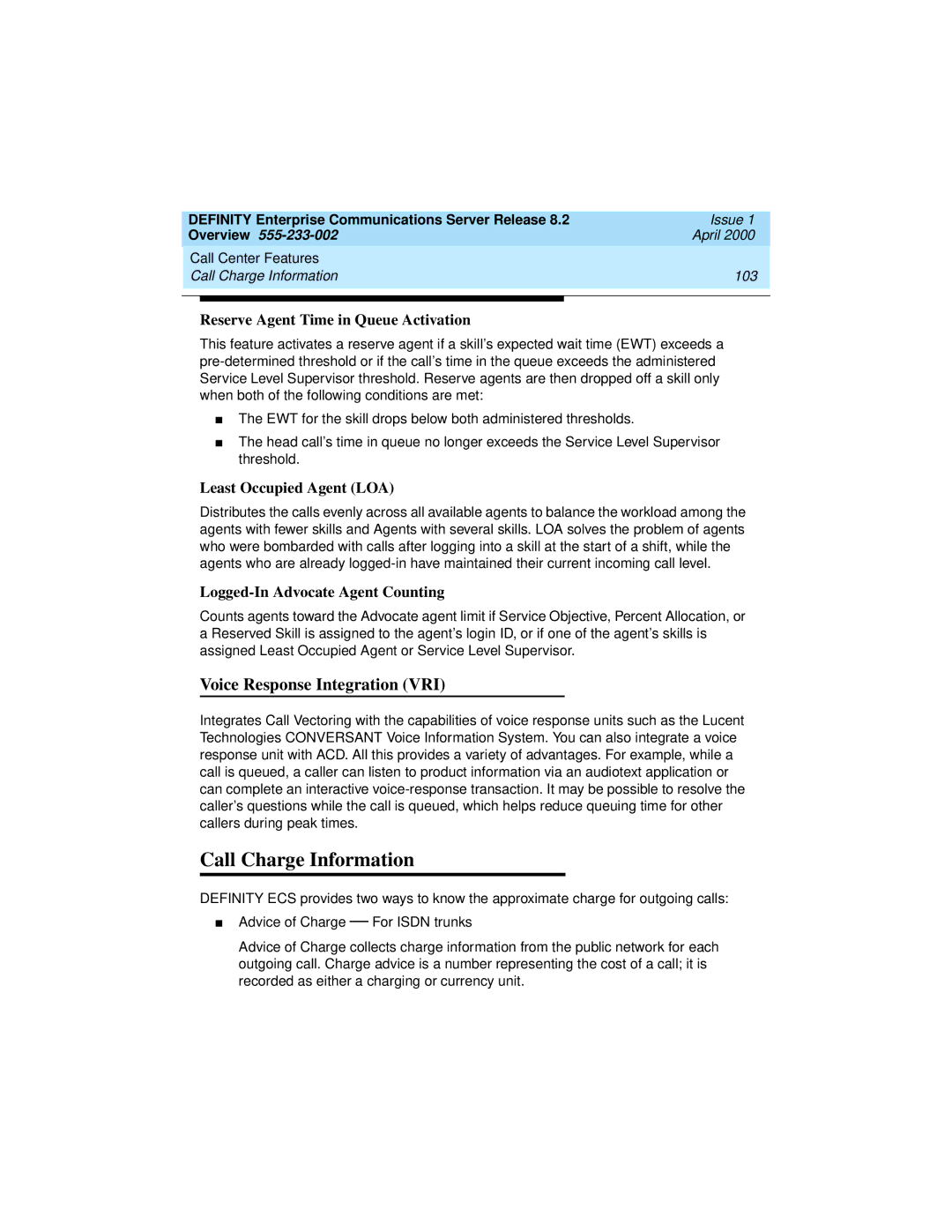
| DEFINITY Enterprise Communications Server Release 8.2 | Issue 1 | ||
| Overview | April 2000 | ||
| Call Center Features |
| ||
| Call Charge Information | 103 | ||
|
|
|
|
|
|
|
|
|
|
Reserve Agent Time in Queue Activation
This feature activates a reserve agent if a skill’s expected wait time (EWT) exceeds a
■The EWT for the skill drops below both administered thresholds.
■The head call’s time in queue no longer exceeds the Service Level Supervisor threshold.
Least Occupied Agent (LOA)
Distributes the calls evenly across all available agents to balance the workload among the agents with fewer skills and Agents with several skills. LOA solves the problem of agents who were bombarded with calls after logging into a skill at the start of a shift, while the agents who are already
Logged-In Advocate Agent Counting
Counts agents toward the Advocate agent limit if Service Objective, Percent Allocation, or a Reserved Skill is assigned to the agent’s login ID, or if one of the agent’s skills is assigned Least Occupied Agent or Service Level Supervisor.
Voice Response Integration (VRI)
Integrates Call Vectoring with the capabilities of voice response units such as the Lucent Technologies CONVERSANT Voice Information System. You can also integrate a voice response unit with ACD. All this provides a variety of advantages. For example, while a call is queued, a caller can listen to product information via an audiotext application or can complete an interactive
Call Charge Information
DEFINITY ECS provides two ways to know the approximate charge for outgoing calls:
■Advice of Charge — For ISDN trunks
Advice of Charge collects charge information from the public network for each outgoing call. Charge advice is a number representing the cost of a call; it is recorded as either a charging or currency unit.
